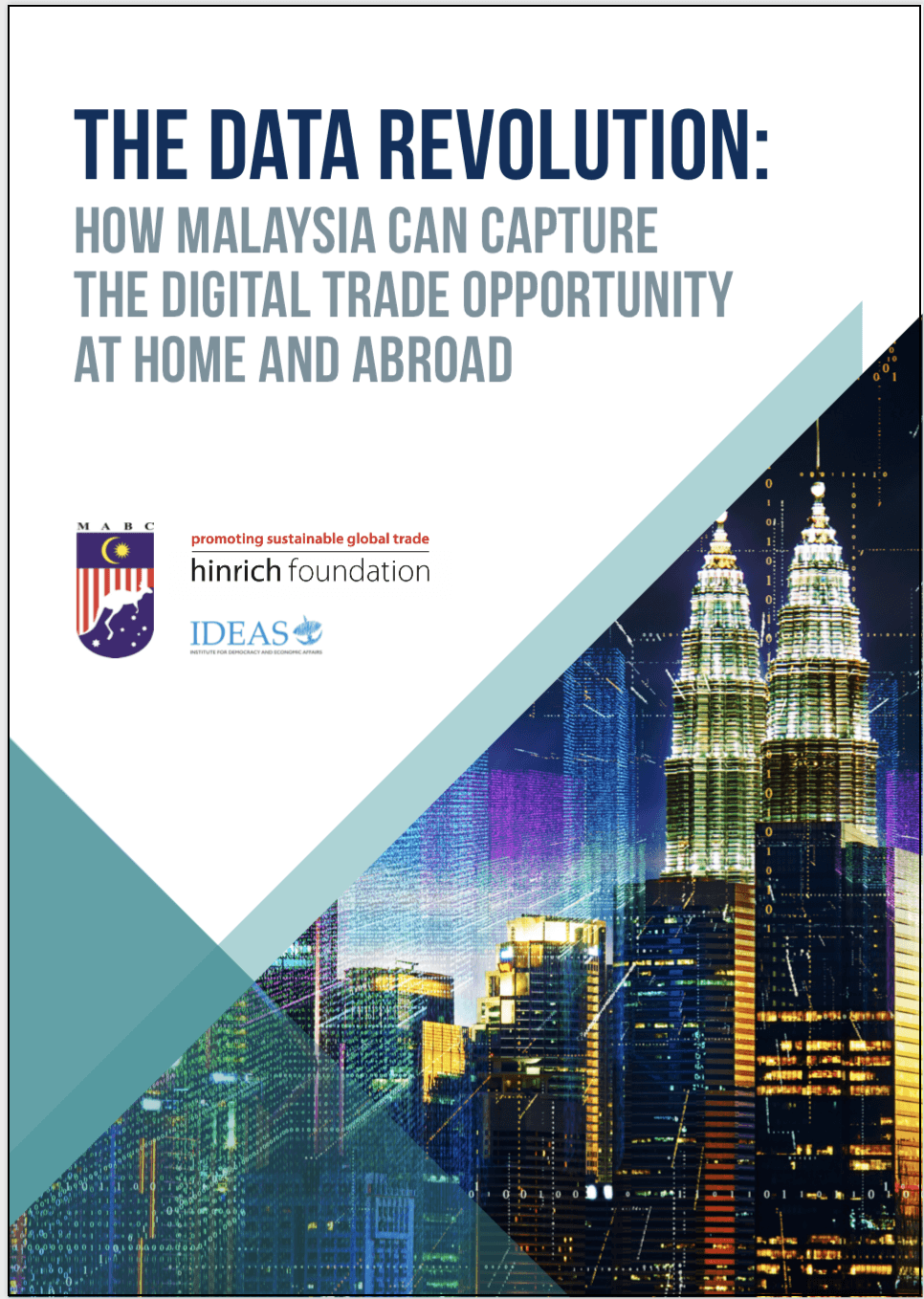Published 20 March 2019
The Hinrich Foundation, Malaysia Australia Business Council, Institute for Democracy and Economic Affairs (IDEAS) and AlphaBeta launched a new report, titled, “The Data Revolution: How Malaysia can capture the digital trade opportunity at home and abroad”, on March 20, 2019.
Malaysia’s has witnessed an exponential growth in digital economy as around 60,000 online businesses have registered with the government agencies. The digital economy now accounts for 18.2% of the country’s GDP in 2016, according to estimates by international Trade and Industry Ministry.
The country has developed an ambitious agenda to fully capture the benefits of digital technologies for the country by providing grants and industry-research matching schemes to companies. Digital trade plays a key role in achieving the vision.
Digital trade is supporting up to US$5.6 billion of economic benefits in Malaysia in 2017 through enabling digital technologies that increase worker productivity, lower costs and create a new source of revenue, according to a report by the Hinrich Foundation, titled “The Data Revolution: How Malaysia Can Capture The Digital Trade Opportunity At Home And Abroad”.
However, this represents just 1.8 percent of the country’s GDP, which is lower than other Asia Pacific economies such as Australia, whose equivalent share of GDP is almost 3 percent. The relatively low penetration rates of these digital technologies suggest a large potential for higher impact in the future. By 2030, this could grow more than nine-fold, reaching US$51.6 billion, the report said.
The report also finds that the export value of virtual goods and services enabled by the digital economy, such as e-commerce, account for US$7 billion in exports in 2017, making it Malaysia’s 6th largest export sector and accounting for 3.3 percent of its total export value. In the absence of digital trade barriers, it is estimated that by 2030, Malaysia’s digital exports could grow by a massive 298 percent from today’s levels to reach US$28.5 billion.
Digital trade covers the production, distribution, marketing, sale or delivery of goods and services – domestically and abroad – supported by cross-border data flows. Malaysia has several opportunities to enhance its current domestic regulatory approaches to capture the benefits arising from digital trade.
The policymakers need to ensure open data flows and interoperability. Malaysia had enacted the Personal Data Protection Act in 2010, which restricted the transfer of personal data outside of Malaysia unless the action has been approved by the Malaysian government. A list of requirements such as the demonstration of “reasonable steps taken to protect data” as well as the severe penalties for non-compliance could pose restrictions to the country’s ability to fully harness the economic benefits of digital trade across a range of sectors including healthcare and financial services.
Policymakers should adopt the APEC Privacy Framework and join the APEC Cross Border data Privacy Rules System and adopt ISO Standards, which specifies controls to protect personal data. It could also encourage interoperability between digital frameworks, particularly on payment gateways, to avoid the costs of companies having to customize their approaches to every single market.
In addition, the policymakers need to promote innovation-oriented approaches to copyright and intermediary liability regulations. A strong environment for digital trade is one in which the development of innovative digital content is facilitated in a manner that does not undermine the interests of rights holders. A well-balanced Internet Intermediary Liability (ILL) regulations can help to ensure the effective removal of illegal content without constraining the free flow of information.
Learn more about the Hinrich Foundation's digital trade research project here.
© The Hinrich Foundation. See our website Terms and conditions for our copyright and reprint policy. All statements of fact and the views, conclusions and recommendations expressed in this publication are the sole responsibility of the author(s).









